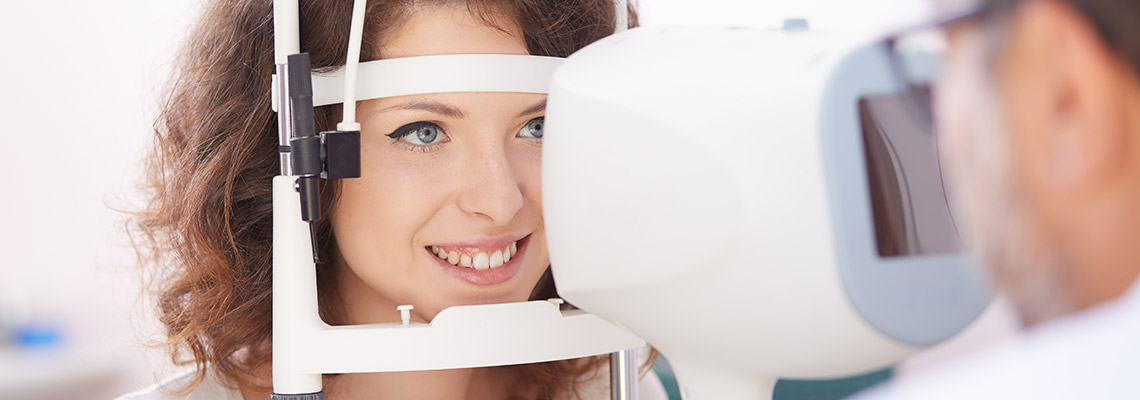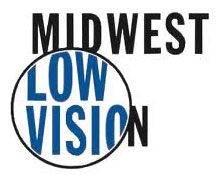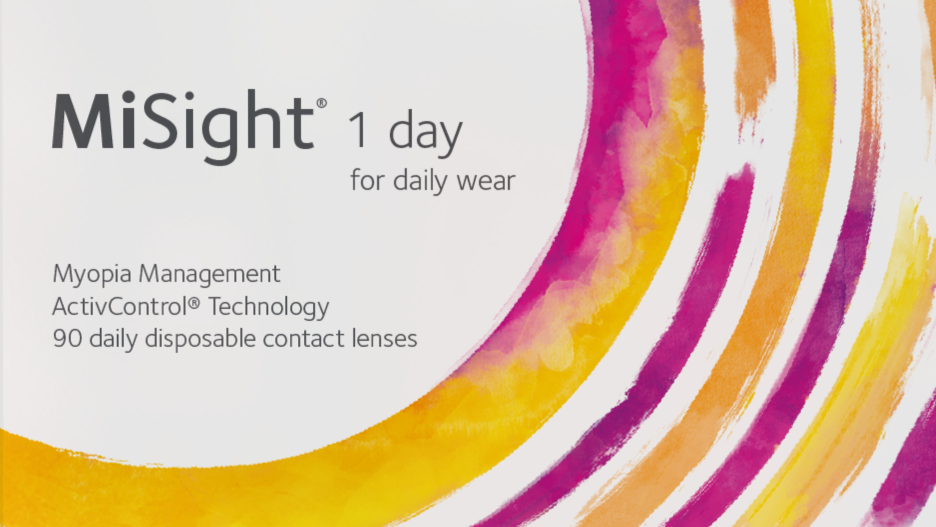
Family Optometry Services in Bloomington, IN
Long Family Eye Care in Bloomington, IN provides a full range of optometry services. Since 1997, we have served patients of all ages. Our doctors are experts in eye health and are dedicated to helping patients achieve clearer vision. We provide a comprehensive range of services including low vision treatment and vision therapy.
We are a participant in the InfantSee Program and treat a full range of eye disorders and diseases including glaucoma, macular degeneration, and more. Our practice carries over 600 eyeglass frames to give you a stylish look. We have your family’s eyecare and vision needs covered, and provide each patient with personalized attention.
Brands We Offer:
DB4k React
Oakley
Ray-Ban
Calvin Klein
Columbia
Dragon
Flexon
LongChamp
Marchon NYC
Nike
State
Prada
Nine West
Koali
Lightec
Nomad
OGA
Kate Spade
SPX Illusion
Dolce & Gabbana
Jimmy Choo
SPX Pure Wave
5515 TMA Must Collection
5521 TNG Titan Next Gen
5540 Titan Dynamics Contour
5567 The Wave
Scott Harris
We offer a full range of eye care services including:
Comprehensive Eye Examination
Your 12-point comprehensive eye examination will include
- Computerized visual field testing
- Retinal photography
- Eye pressures (“gentle-puff” or no-puff technology)
- Corneal shape measurement
- Auto-refraction
- Visual acuity testing
- Eye coordination and focusing tests
The inside and outside of the eyes will be examined through a biomicroscope and all findings will be explained throughout the examination. You should allow approximately one hour for your visit and plan on having your pupils dilated – especially if you are a new patient.
Contact Lens Examination
Our practice stays current and uses the most advanced contact lens technology available to fit patients who have astigmatism, wear bifocals, or want an eye color change. A contact lens fitting can usually be done during your general eye examination.
Refractive Surgical Care
Together with you, our doctors will determine if LASIK or another corrective treatment is an option for you. If you are a good candidate, we will help you choose a trusted surgeon in our area. We are happy to discuss your options during your routine examination or a scheduled pre-operative evaluation.
Treatment and Management of Eye Diseases
Many eye diseases, such as glaucoma, cause no symptoms until it’s too late. You will be thoroughly evaluated for all eye diseases and treated or referred as necessary. For advanced competency in medical eye care, Dr. Angie Long trained at a specialty clinic in Utah and also at Keesler AFB in Biloxi, Mississippi. Dr. Jarrod Long trained in residency at a New York VA hospital as one of only 15% of optometrists who complete this advanced medical eye care training.
Eye Emergencies
Eye injuries, sudden vision loss, seeing flashes of light, and eye infections should be seen immediately. Our office provides 24-hour emergency care. By calling the regular office number you will hear our voicemail recording which will list one of the doctor’s direct phone numbers.
Midwest Low Vision and Vision Aid Center
Each year thousands of people experience a decrease in their vision not treatable by glasses, contact lenses, medicine, or surgery. When uncorrectable, decreased vision limits you in your performance of everyday tasks. With such an impairment in vision, you may have been told by an eye doctor that you have “low vision.” You might also be informed that “nothing more can be done.” In most cases, this is simply not true.
magnifiers and microscopic glasses
telescopic glasses
prismatic glasses
glare and contrast controlling filters
electronic magnification systems (CCTV’s)
non-optical vision aids, such as large print and talking watches
macular degeneration
glaucoma
diabetic retinopathy
traumatic brain injury or stroke
corneal disease
congenital diseases such as albinism or retinitis pigmentosa
About Midwest Low Vision
Dr. Jarrod Long created Midwest Low Vision in 2006 and joined the International Academy of Low Vision Specialists (IALVS) to expand upon the low vision care which he already provided since opening in 1997. A low vision examination with Dr. Long concentrates on the problems caused by your visual impairment rather than the eye disease with which you have been diagnosed (you’ll continue with your regular eye doctors for eye health care). Dr. Long will focus on your personal “wish list” – that is, what you are no longer able to see to do because of your decreased vision. Your remaining vision is determined using special eye charts, refraction techniques, and other special testing. Once these important findings are assessed, the doctor considers your visual goals and helps you determine what treatments are most appropriate to enable you to meet your wish list.
Myopia Management
Myopia management is a treatment program aimed at controlling myopia (nearsightedness) — keeping the level of myopia as low as possible — in order to reduce your child’s risk of developing vision-threatening eye diseases later in life. Myopia management can involve the use of special eyeglasses, contact lenses, eye drops, and environmental controls — all scientifically proven to aid in the control of myopia progression.
Dr. Angie Long and her certified technicians at Long Family Eye Care are experts in myopia management and are passionate about limiting the progression of your child’s nearsightedness. We are committed to excellent patient care and satisfaction with myopia management results.
- Eyeglasses
- Contact lenses
- Atropine eye drops
- Education about environmental factors
Any amount of myopia places an individual at an increased risk of sight-threatening diseases. However, the incidence of these conditions is greatest in individuals with high myopia. So, the goal of Dr. Long’s myopia management program is to limit the level of nearsightedness your child develops as they reach adulthood
- Glaucoma (open-angle)
- Cataract (nuclear, cortical, and posterior subcapsular)
- Retinal Tears (which may lead to a retinal detachment)
- Myopic Maculopathy and Myopic Macular Degeneration
Frequently Asked Questions
Our doctors recommend a comprehensive exam once per year even if you are seeing clearly.
Without insurance, our exams start at $159. This includes the full health check and prescription for eyeglasses. Contact lens services such as a new fit or refit can add to this cost. We do accept Medicare for medical eye visits, as well as EyeMed and VSP for vision care. We are happy to check your specific benefits before your appointment, just give us a call!
Yes! We have hundreds of styles for men, women, and children for you to try on. The lenses are custom made to your parameters by our lab of choice. Currently we use a top lab in Indianapolis and once ordered glasses typically take 7-14 business days to arrive.
We have a wide range of frame styles, from budget to designer, starting at around $150. The cost for lenses depends on your prescription, lens type, and whether our doctors prescribe additional lens enhancements. Some insurance plans offer benefits for all of the above. We are happy to check your specific benefits before your appointment, just give us a call!
20/20 vision is a term used to express normal visual acuity (the clarity or sharpness of vision) measured at a distance of 20 feet. If you have 20/20 vision, you can see clearly at 20 feet what should normally be seen at that distance.
If you can see clearly up close but things far away from you are blurry, you are likely nearsighted. Similarly, if you can see clearly far away but things near you are blurry, you are likely farsighted.
Astigmatism simply means your eyes are not perfectly spherical! It’s not a disease and can be corrected with glasses and/or contacts. The cornea is the clear front part of the eye that focuses most of the light into the eye. If the cornea is spherical, like a baseball or basketball, light entering the eye from different directions is focused onto a single point. If the cornea is shaped like a football, where one meridian or direction is steeper than the other, light will be focused differently as it enters the eye. This will cause blurred vision at distance and near if it is not corrected.
For more information about our optometry services in Bloomington, IN or to schedule an appointment, please contact us today at 812-332-5090. We are always welcoming new patients into our family. We are proud to serve patients from across Monroe County and surrounding areas.







